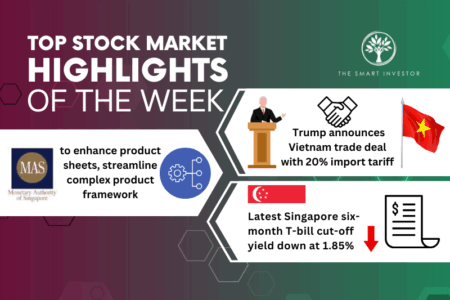Are you feeling left out because you missed Nvidia’s (NASDAQ: NVDA) massive stock rise?
Well, we have good news and bad news.
Let’s start with the bad news: that tightening in your chest you are feeling right now is the fear of missing out — or better known by its initials “FOMO”.
And ladies and gentlemen, FOMO is real.
It’s that sneaky emotion which spurs you to buy a stock based on a feeling rather than proper research.
And why would you do that?
Like it or not, fear is a strong emotion, especially when it comes to investing.
If left unchecked, this feeling of dread takes over and dictates the way we think and act.
That’s especially after shares of Nvidia have risen by 84% since the start of this year.
Yes, it’s FOMO city with Nvidia right now.
But hang on, amid the hype — there’s good news too.
If you recognise that you are feeling FOMO, then congratulations — you have just taken the first step in recognising what you have to deal with: your runaway emotions.
The next step is to keep your emotions in check.
It’s not just FOMO but FOJI too
On the other side of FOMO, is its cousin FOJI — or the fear of joining in.
Like FOMO, FOJI is also a strong emotion.
That’s especially true for some investors who are bearing scars from 2022 when US stocks took a beating amid a punishing bear market.
These scars can emit another fear — FOJI — which is paralysing for investors.
The fear of looking stupid if you buy today only to watch the stock fall the very next day.
The fear of being too late to the party only to be left holding the bag when the crowd heads for the exits.
Most of all, the fear of losing your hard-earned money if the stock unexpectedly crashes.
Here’s the thing: what you need to recognise is that FOJI, much like FOMO, is an emotion.
Whether it is FOMO or FOJI, you won’t invest well if feelings dictate your actions.
Recognising the presence of both emotions is key.
To be clear, we’re not saying whether Nvidia is a buy or a sell today.
What we are saying is whether or not you decide to invest in Nvidia should not be driven by FOMO or FOJI.
If you decide to buy, you should back your action with proper research, and know the risks before you do so. On the other hand, if you are unsure, you should avoid the stock altogether.
Either way, do it for the right reasons, not emotions.
Meet JOMO
Beyond FOMO and FOJI, there’s JOMO or the joy of missing out.
Don’t feel down if you decide to give Nvidia a pass.
As Peter Lynch once said — you can’t kiss all the frogs to find out which will turn into a prince.
Unconvinced?
In Lynch book’s “One Up on Wall Street”, he wrote down the names of 65 stocks which returned at least 10 times their original price (he calls them 10-baggers).
Except that the fund that he ran owned NONE of them.
Before you start rolling your eyes, consider this point: Peter Lynch achieved a stunning 29% per year in annualized returns over 13 years, outpacing the benchmark S&P 500 index (INDEXSP: .INX) by more than two times.
Wait, there’s more.
To put his track record into context, Singapore’s Straits Times Index has returned 6.3% per year for the near-22-year period between April 2002 and the end of January 2024.
Hence, Lynch’s returns were 4.6 times better than the STI’s returns.
Again, that’s after missing out on all 65 winning stocks that he listed.
By sharing the list of missed winners, Lynch had a salient point to make: you do not need to be in every 10-bagger to deliver enviable returns.
Get Smart: Don’t predict, prepare
Warren Buffett once said — predicting rain doesn’t count, building an ark does.
I’ll add my own analogy: don’t wait for rain to fall before preparing your umbrella.
As the US stock market breaks new highs, investors are understandably cautious.
But it shouldn’t stop you from doing research, having a list of stocks you want to own, and being less attached to the day-to-day drumbeat of the stock market.
When you choose to buy stocks today or in the future, remember this: buy because you want to own the underlying business, don’t buy because the stock has gone up or down.
If you’re wondering about how you can leverage AI in your investment portfolio, and how it can boost your portfolio, good news! We just released an urgent Special Free Report to cover everything you need to know about AI and its implications for investors. Find out which listed companies are actively using AI to power their businesses and what you should do to prepare for the AI boom. Click here to download your free report now.
Follow us on Facebook and Telegram for the latest investing news and analyses!
Disclosure: Chin Hui Leong does not own any of the companies mentioned.





